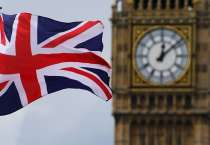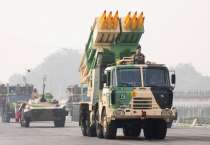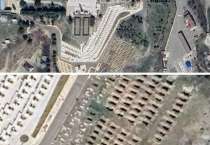Chinese used to escape to this former British colony. Now, cheap boba has turned the tables
Publications
With Hong Kong’s sky-high cost of living, residents like Andy Tsui have been looking for alternative ways to have more fun and spend less. And he’s found one.
Recent weekends have seen him shopping at glitzy malls, singing at swanky karaoke joints and dining on the freshest Australian crayfish.
Add a cup of the trendiest bubble tea, and his bill for the day normally amounts to no more than $60. That’s the sort of money many of his friends have been paying for just one meal — and no boba.
“You can have half a Peking duck for as little as 60 to 70 yuan ($10), more than enough to feed three people, and on every corner there is a bubble tea place that sells a cup that costs just 10 to 12 yuan ($1.70),” Tsui told CNN, ahead of yet another weekend trip to Shenzhen. “The price difference is just so stark.”
During the visits, he often finds himself surrounded by “more Hongkongers than locals.”
Most are taking advantage of the high-speed rail service between the cities that opened in 2018, which has cut the travel time to less than half an hour.
In the minds of the day trippers, these cross-border jaunts are just fun days out. But collectively, they are part of a bigger picture that reveals much about the shifting power dynamics between China and Hong Kong, and East and West.
Such trips are noteworthy because, for much of Hong Kong’s modern history, the traffic has been largely — conspicuously, even — in the other direction. Hong Kong used to be the place where Chinese would escape to, not from.
In the decades after the 1949 establishment of the People’s Republic of China, when the mainland was mired in poverty, hundreds of thousands of Chinese are estimated to have risked their lives to reach the glittering shores of what was then a British colony.They were drawn not only by the promise of Western-style freedoms, but by the sort of luxuries that only Western-style capitalism was able to afford at the time.
Hong Kong’s draw endured long after Britain handed over control of the city to China’s communist masters in 1997. Under the “One Country, Two Systems” formula of governance, Beijing allowed the city to keep its capitalist ways and Western-style freedoms, mindful of upsetting an economy that was then equivalent to almost 20% of China’s.
Even as recently as 2018, 51 million mainland Chinese tourists — about seven times the population of Hong Kong — visited the city, flocking to the local Disneyland or filling up suitcases stuffed with foreign goods such as baby formula to cart back across the border.
Indeed, so numerous were the arrivals that, despite the boost to the economy, locals began to resent their guests. Newspapers ran reports about misbehaving mainlanders and street protests denounced them as “locusts.”
The backlash got so bad that the Hong Kong government was eventually forced to limit Shenzhen residents to once-a-week visits.
But fast forward a few years, and the picture has changed. In 2023, just 26 million mainlanders — about half of the 2018 crowd — visited Hong Kong.
More tellingly, only about 200,000 mainland Chinese now visit the city on weekends, while more than twice that number travel in the opposite direction to Shenzhen, according to the data from Hong Kong Immigration Department tracking the second half of 2023.
“When ordinary people of Hong Kong, which used to be the shopper’s paradise, prefer to shop in Shenzhen, Hong Kong is not doing well by its ordinary folks,” said Steve Tsang, director of the China Institute at SOAS University in London.
It’s possible too to see the reversal in weekend visitor figures as a victory for Beijing’s efforts to tighten its control over the once freewheeling city, following the outbreak of historic pro-democracy protests in 2019.
Those efforts have included crude attempts to drum up patriotism and a sense of belonging to the mainland among Hongkongers, and more subtle ones based on economic incentives.
The strategy can be seen in Beijing’s plans to integrate Hong Kong and its southern Chinese neighbors into a giant Greater Bay Area, which Beijing envisages as an economic hub to one day rival San Francisco, New York or Tokyo.
Many Hongkongers resent that scheme, along with the various multibillion-dollar, record-breaking bridges that are being constructed to link the cities. They fear the intention is to subsume their city’s local identity.
Beijing’s ambitions can also be seen in the creation of the once highly controversial high-speed rail system that now carries Hongkongers to their Shenzhen shopping sprees at lightning speed.
Controversy over the line had centered around a jointly manned checkpoint at the West Kowloon terminus in Hong Kong, where mainland law enforcement officers were allowed to take charge of immigration and customs procedures in an arrangement some Hongkongers considered an infringement of territory.
A tale of two cities
The year 2018 was significant, and not only for the launch of the gleaming high-speed rail that now shuttles shoppers between Hong Kong and Shenzhen at 120 miles an hour.
That year Hong Kong’s economy was finally surpassed by that of neighboring Shenzhen, a situation that would have been hard to imagine a few decades previously.
Hong Kong’s economy is now equivalent to only about 2% of mainland China’s. As that number has fallen, critics say, so too have any lingering concerns Beijing might have had about upsetting Hong Kong by changing the “One Country, Two Systems” formula.
In 2019, pro-democracy protests swept Hong Kong, fueled by perceptions that Beijing was tightening its reins and reneging on its promise of a high degree of autonomy for the city.
A year later, Beijing responded by introducing a national security law that critics say has snuffed out many of the city’s freedoms, such as of speech and assembly, and introduced questions over the independence of its judiciary.
That law, critics say, has further blunted the advantage that Hong Kong once held over its mainland neighbors; that it was an entrepot to mainland China with the bonus of British-style rule-of-law. Beijing, though, maintains that the law will bring stability and prosperity.
Even as late as the 2000s, Hong Kong’s modern malls, trendy nightlife and East-meets-West culture were leaving Shenzhen’s offerings firmly in their shadow. But just as Hong Kong’s star was beginning to wane, Shenzhen’s was shining ever brighter.
The seed for its stunning growth was planted in 1980, when China made the city one of its first special economic zones, positioning it to benefit from the country’s stellar growth as its communist leaders embraced what some scholars describe as a form of state capitalism.
In the 1980s, the population of Shenzhen, a former fishing village, was only in the hundreds of thousands. Today, it has 13 million people and is now home to some of China’s biggest tech firms, including Huawei and Tencent.
The megacity now has gleaming malls and luxury karaoke lounges with floor-to-ceiling projector screens that make those in Hong Kong look quaint by comparison. And it has plenty of room for expansion. In 2025, the city is expected to complete the world’s biggest indoor ski resort.
Hongkonger Eddy Lam, 32, loves to go there for its wide selection of regional Chinese cuisines, from Chongqing’s spicy hot pot to xiaolongbao from Shanghai.
“The decor is nicer, the place is bigger, and the food is more authentic,” says Lam, who has visited Shenzhen 10 times in the past three months.
For others, Shenzhen’s main draw is - ironically - its Western-style membership only warehouse chains. It has branches of both Costco and Sam’s Club, a chain run by the American retail giant Walmart.
Cherrie Leung, a wealth manager from Hong Kong, says she buys her milk and yogurt from one of the three Sam’s Club branches in Shenzhen.
“They come straight from farms in Inner Mongolia, Beijing (and other places in China),” she says. “And they’re super fresh.”





 Cameron says Kyiv can use British weapons inside Russia, Kremlin reacts
Cameron says Kyiv can use British weapons inside Russia, Kremlin reacts Duchess Sophie visits Ukraine in first trip by British royal since start of war
Duchess Sophie visits Ukraine in first trip by British royal since start of war Nikol Pashinyan gives interview to British media
Nikol Pashinyan gives interview to British media US State Department announced sanctions against Belarusian and Chinese companies
US State Department announced sanctions against Belarusian and Chinese companies British Foreign Secretary Cameron meets Trump in Florida ahead of Blinken talks
British Foreign Secretary Cameron meets Trump in Florida ahead of Blinken talks French foreign minister meets with his Chinese counterpart ahead of Macron-Xi Jinping meeting
French foreign minister meets with his Chinese counterpart ahead of Macron-Xi Jinping meeting British army allows beards ending a 100-year ban
British army allows beards ending a 100-year ban Xiaomi unveils cheap smartphone Poco C61, which has flagship design
Xiaomi unveils cheap smartphone Poco C61, which has flagship design Key takeaways from Chinese FM’s press conference
Key takeaways from Chinese FM’s press conference Today is Vazgen Sargsyan’s Birthday։ The Commander would have turned 65 years old
Today is Vazgen Sargsyan’s Birthday։ The Commander would have turned 65 years old


















































 Most Popular
Most Popular 
 Bianca Censori 'furious' over Kanye West's plans to launch porn platform
Bianca Censori 'furious' over Kanye West's plans to launch porn platform























